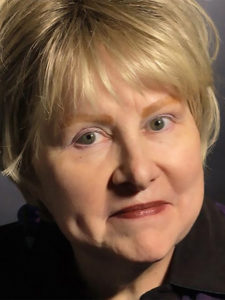Whitney Gould, a Madison native who became an influential urban landscape writer and architecture critic for the Milwaukee Journal Sentinel, died over the weekend at her Milwaukee home. She was 76.

Gould was the daughter of Stevens and Elizabeth Gould, both of whom came from Wisconsin lumber baron families, according to a 2007 Milwaukee Magazine profile. Stevens Gould, an engineer who served as an aviator in the U.S. Navy during World War I, also played end and halfback for the Wisconsin Badgers football team. Elizabeth Gould was a former English teacher who served as the art and drama critic for the Wisconsin State Journal.
Whitney Gould grew up on the east side of Madison and graduated from Wisconsin High School, a small experimental high school run by UW-Madison that later merged with Madison Central High School.
She went on to attend college at UW-Madison, where she wrote for The Daily Cardinal student newspaper. Gould graduated in 1965 with a degree in art history and German. After briefly studying art history in Columbia University’s graduate program, as well as writing ad copy for J.C. Penney in New York, Gould returned to Madison, where she started her journalism career in 1966 at The Capital Times.
Gould made her mark as one of the state’s first environmental reporters. Her award-winning coverage was instrumental in getting the pesticide DDT banned. In the early 1980s, Gould became the editorial page editor of The Cap Times.
In 1984, Gould was hired as an editorial writer for The Milwaukee Journal, a position she held for more than a decade. Following the Journal’s merger with the Milwaukee Sentinel, Gould began to cover architecture and urban planning. She remained in that role until her retirement in 2007.
During her time as an architecture critic, Gould was instrumental in shaping Milwaukee’s skyline. She played a major role in both championing the Santiago Calatrava-designed pavilion at the Milwaukee Art Museum and opposing the original design of Discovery World.
Gould is remembered by colleagues as a fiercely independent, strong-willed woman, according to the Journal Sentinel obituary. They also noted she wasn’t one to hold back her opinions, which led to former Journal Sentinel editor Marty Kaiser frequently receiving calls about Gould’s columns.
“Whitney had a powerful influence on Milwaukee. Architects and builders admired and, at times, feared her reviews,” Kaiser said in the obituary. “She was a wonderful writer who brought tremendous experience to her work.”



